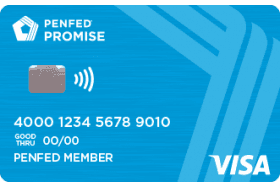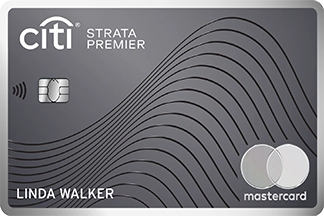- myFICO® Forums
- FICO Scoring and Other Credit Topics
- Personal Finance
- Re: How would you invest $10,000 for the highest r...
- Subscribe to RSS Feed
- Mark Topic as New
- Mark Topic as Read
- Float this Topic for Current User
- Bookmark
- Subscribe
- Mute
- Printer Friendly Page
How would you invest $10,000 for the highest return in a year?
Is your credit card giving you the perks you want?
Browse credit cards from a variety of issuers to see if there's a better card for you.
- Mark as New
- Bookmark
- Subscribe
- Mute
- Subscribe to RSS Feed
- Permalink
- Report Inappropriate Content
Re: How would you invest $10,000 for the highest return in a year?
@ejbarraza wrote:
I would recommend Indexed Universal Life (IUL) insurance. If the stock market goes up you make 24.35% in a tax-free vehicle. If the stock market does not go up, you don't take equity downside risk. Also, it comes with a contractually guaranteed loan provision to be able to borrow at 5% APR while earning double digit returns. Plus the terminall illness, critical illness, and chronic illness coverage that can be cash advanced from the death benefit at any point.
Can you explain it a bit more in a simple way? Thanks
- Mark as New
- Bookmark
- Subscribe
- Mute
- Subscribe to RSS Feed
- Permalink
- Report Inappropriate Content
Re: How would you invest $10,000 for the highest return in a year?
@Janneman wrote:
@ejbarraza wrote:I would recommend Indexed Universal Life (IUL) insurance. <snip>
Can you explain it a bit more in a simple way? Thanks
I'm not @ejbarraza, but here's my take: It's basically a variation on a whole life insurance policy, except the cash that accumulates as you pay premiums is effectively invested in a stock market index. The main selling point is there's more upside (though it may be capped), but it typically lacks the downside protection of a whole life plan, is a less efficient vehicle for retirement savings than something like a 401K (due to things like high fees and premiums), and it can be canceled if you stop making payments. While an IUL can be a good choice, it's on the complex end of retirement planning, and is hard to consider in isolation.
- Mark as New
- Bookmark
- Subscribe
- Mute
- Subscribe to RSS Feed
- Permalink
- Report Inappropriate Content
Re: How would you invest $10,000 for the highest return in a year?
It is more complex, but it is significantly more lucrative than not owning an insurance policy at all. Plus the premiums paid can be leveraged using a bank line of credit to earn a positive rate of return internally and externally using the cash value to fund investments or refinancing high interest debt.
- Mark as New
- Bookmark
- Subscribe
- Mute
- Subscribe to RSS Feed
- Permalink
- Report Inappropriate Content
Re: How would you invest $10,000 for the highest return in a year?
@ejbarraza Are you in the insurance business?































Total revolving limits 568220 (504020 reporting) FICO 8: EQ 689 TU 691 EX 682
- Mark as New
- Bookmark
- Subscribe
- Mute
- Subscribe to RSS Feed
- Permalink
- Report Inappropriate Content
Re: How would you invest $10,000 for the highest return in a year?
- Mark as New
- Bookmark
- Subscribe
- Mute
- Subscribe to RSS Feed
- Permalink
- Report Inappropriate Content
Re: How would you invest $10,000 for the highest return in a year?
@Anonymalous wrote:
@Janneman wrote:
@ejbarraza wrote:I would recommend Indexed Universal Life (IUL) insurance. <snip>
Can you explain it a bit more in a simple way? Thanks
I'm not @ejbarraza, but here's my take: It's basically a variation on a whole life insurance policy, except the cash that accumulates as you pay premiums is effectively invested in a stock market index. The main selling point is there's more upside (though it may be capped), but it typically lacks the downside protection of a whole life plan, is a less efficient vehicle for retirement savings than something like a 401K (due to things like high fees and premiums), and it can be canceled if you stop making payments. While an IUL can be a good choice, it's on the complex end of retirement planning, and is hard to consider in isolation.
@Anonymalous Whole Life policies can also earn indexed crediting rates similar to IULs whilst preserving the guaranteed premiums, growth, death benefit, and Long-Term Care benefits.
- Mark as New
- Bookmark
- Subscribe
- Mute
- Subscribe to RSS Feed
- Permalink
- Report Inappropriate Content
Re: How would you invest $10,000 for the highest return in a year?
@ejbarraza wrote:Yes.
So this is all an ad for your company?
- Mark as New
- Bookmark
- Subscribe
- Mute
- Subscribe to RSS Feed
- Permalink
- Report Inappropriate Content
Re: How would you invest $10,000 for the highest return in a year?
@Anonymalous wrote:
@ejbarraza wrote:Yes.
So this is all an ad for your company?
No, you can go straight to the insurance companies (i.e. Guardian Life, Ameritas Life, Pacific Life) directly and in no way shape or form benefit me and only benefit your own networth and estate planning needs.
- Mark as New
- Bookmark
- Subscribe
- Mute
- Subscribe to RSS Feed
- Permalink
- Report Inappropriate Content
Re: How would you invest $10,000 for the highest return in a year?
@ejbarraza wrote:
@Anonymalous wrote:
@ejbarraza wrote:Yes.
So this is all an ad for your company?
No, you can go straight to the insurance companies (i.e. Guardian Life, Ameritas Life, Pacific Life) directly and in no way shape or form benefit me and only benefit your own networth and estate planning needs.
An IUL is not an investment vehicle and does not meet the question and (limited) criteria asked of the OP - investment advice for a one time $10,000 that I assume they want liquid (only because they mentioned a 5% HYSA as an option).
Everyday 5% CB:
Chase prime Visa // citi CUSTOM CASH “A” // citi CUSTOM CASH “B” // citi SHOP YOUR WAY (5% gas (in points), lucrative spending offers) // mylowe’s Rewards // Target circle card // primis Perks debit Visa (50c CB per transaction (5% CB or more up to $10 spend))
5% CB rotating:
Chase “OG” freedom Visa // DISCOVER it Cash Back // nusenda CU Platinum Cash Rewards
Everyday 4% CB:
US Bank Smartly (v1.0)
Everyday 3% / 2.2% CB:
AOD FCU Visa Signature (3%, sockdrawered) // upgrade Cash Rewards Elite (2.2%, sockdrawered)
Welcome Offer / credits only:
Chase SAPPHIRE PREFFERED (grabbed my $1,000, sockdrawered, will cancel) // NFCU FLAGSHIP REWARDS (elevated Welcome Offer, annual prime credit, sockdrawered)
Hotel card:
Chase IHG ONE REWARDS PREMIER (elevated Welcome Offer, 1 free night/yr)
On my radar:
Langely FCU Signature Cash Back (5% CB monthly selectable cat) // Safe CU Cash Back+ (Quarterly rotating 5% CB cats plus bonus cats) // upgrade MyFive Cash Rewards (5% CB monthly selectable cat) // US Bank Kroger (and family) World Elite Master Card(s) (5% CB Mobile Wallet)
- Mark as New
- Bookmark
- Subscribe
- Mute
- Subscribe to RSS Feed
- Permalink
- Report Inappropriate Content
Re: How would you invest $10,000 for the highest return in a year?
I would say that the first point would be to clarify whether you are looking for the best possible return per year or if you are looking for the best return for just one single year.
If you are looking to put funds to work for one year because you need the money at the end of that year for some future expense (house, car, wedding, etc.) then the first priority is not to make the greatest return but to lower your risk so you can be absolutely sure that you are not forced to liquidate an asset (like a stock or long term bond) at a loss because you have to sell.
In the case of a single year the most common choice would be a CD or a high yield savings account as these are very safe investments that still offer a return on investment.
Government backed bonds such as T-Bills are also a safe source of returns.
If you are simply looking for the highest annual returns and do not need to touch the money for at least a couple years the stock market is the best bet.
Keep in mind that not all stocks are created equal.
Some stocks are more stable while others are volatile.
Some stocks grow quickly while others plod along slowly.
Even better would be to put the money in a tax exempt or tax deferred account such as an IRA, HSA or 401K (if your employer matches, the match is a guaranteed return on your investment, often it is 100% if they match contributions dollar for dollar).
If you have some good ideas and a lot of time on your hands, starting a business (not for the faint of heart) might get you some fantastic returns.
As a business owner I can tell you that starting a business involves a lot of risk, a lot of stress, and can be demanding enough that you miss out on the opportunity to work for someone else and get a steady paycheck.
Having more time allows you to take more risk as it allows you to be patient when a stock goes down where a shorter time frame makes these decisions much more difficult.






